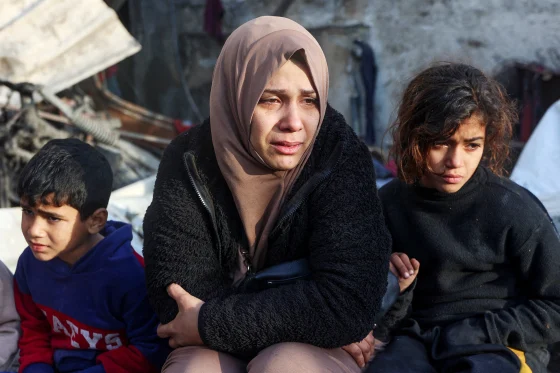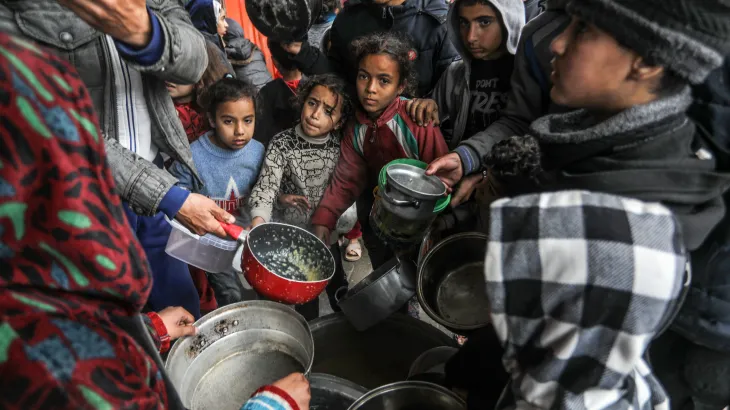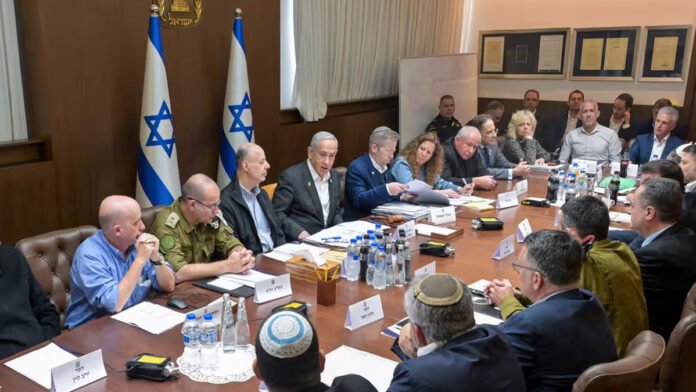Gaza Ceasefire Agreement Ratification
In the blood-stained ledger of Middle East peace agreements, we’ve learned to temper hope with history. The latest ceasefire deal between Israel and Hamas, ratified by Israel’s security cabinet after an anxiety-inducing delay, offers a glimmer of light in the darkness that has engulfed Gaza for fifteen brutal months. But as with all such agreements in this troubled region, the devil lurks not in the details, but in the trust required to implement them.
The mathematics of human exchange makes for grim reading: 33 hostages for a thousand Palestinian Hostages/prisoners, six weeks of peace bought with careful calculations of human value. Each life weighed, measured, and bartered in a diplomatic marketplace where hope trades at a premium. The French President Emmanuel Macron’s swift announcement about his French citizens’ imminent release betrays the international pressures at play in this delicate diplomatic dance.
Let’s be clear about what this deal represents: not a solution, but a respite. A 42-day pause in a conflict that has claimed over 46,000 Palestinian lives and left Gaza’s infrastructure in ruins. The promised increase to 600 aid trucks daily might ease the humanitarian catastrophe, but it cannot rebuild a society shattered by modern warfare. When the International Court of Justice is investigating genocide claims, we must ask ourselves how we measure progress in teaspoons while suffering flows by the gallon.

The deal’s three-phase structure reads like a roadmap drawn on shifting sands. The first phase offers concrete steps: hostage releases, prisoner exchanges, freedom of movement within Gaza’s bifurcated landscape. But the second and third phases – complete Israeli withdrawal, exchange of the deceased, Gaza’s reconstruction – remain frustratingly nebulous. The question of future governance hangs like a sword of Damocles over any long-term peace prospects.
Meanwhile, even as the ink dried on the agreement, Israeli warplanes continued their assault, claiming 86 more lives in what feels like a tragic coda to this chapter of the conflict. The IDF’s report of striking 50 targets in the past 24 hours serves as a stark reminder that peace agreements and warfare can coexist in the same breath.
The ghosts of past ceasefires haunt this new agreement. The November 2023 deal that freed 100 hostages lasted barely a week before collapsing into renewed violence. Now, as then, the success of this agreement depends not on the words written on paper, but on the will to honour them.

Yet we must not surrender to cynicism. Each life saved – whether Israeli hostage or Palestinian Hostage/prisoner – represents a victory for humanity over hatred. The planned freedom of movement for displaced Palestinians, the evacuation of the wounded, the increase in humanitarian aid – these are not mere diplomatic achievements but lifelines for a population pushed to the brink of survival.
The hard truth is that this agreement, imperfect as it may be, represents the best hope for thousands caught in this conflict’s merciless grip. The far-right members of Netanyahu’s coalition who threatened to derail it speak the language of absolutism that has kept this region locked in conflict for generations.
As we wait for Sunday’s first exchanges, we’re left with more than just prayers – we’re left with a test of human will against the tide of history. The success of this ceasefire doesn’t just rest on the leaders who signed it, but on every soldier who must hold fire, every official who must facilitate aid, and every person who must believe that peace, however fragile, is worth preserving.
In the end, this deal may prove to be another false dawn in the long night of Middle Eastern conflict. But for the families awaiting their loved ones’ return, for the wounded awaiting evacuation, for the hungry awaiting aid – it offers something precious: time. Time to heal, time to hope, and perhaps, time to imagine a future where such deals are no longer necessary.
Support Independent Journalism Today
Our unwavering dedication is to provide you with unbiased news, diverse perspectives, and insightful opinions. We're on a mission to ensure that those in positions of power are held accountable for their actions, but we can't do it alone. Labour Heartlands is primarily funded by me, Paul Knaggs, and by the generous contributions of readers like you. Your donations keep us going and help us uphold the principles of independent journalism. Join us in our quest for truth, transparency, and accountability – donate today and be a part of our mission!
Like everyone else, we're facing challenges, and we need your help to stay online and continue providing crucial journalism. Every contribution, no matter how small, goes a long way in helping us thrive. By becoming one of our donors, you become a vital part of our mission to uncover the truth and uphold the values of democracy.
While we maintain our independence from political affiliations, we stand united against corruption, injustice, and the erosion of free speech, truth, and democracy. We believe in the power of accurate information in a democracy, and we consider facts non-negotiable.
Your support, no matter the amount, can make a significant impact. Together, we can make a difference and continue our journey toward a more informed and just society.
Thank you for supporting Labour Heartlands









